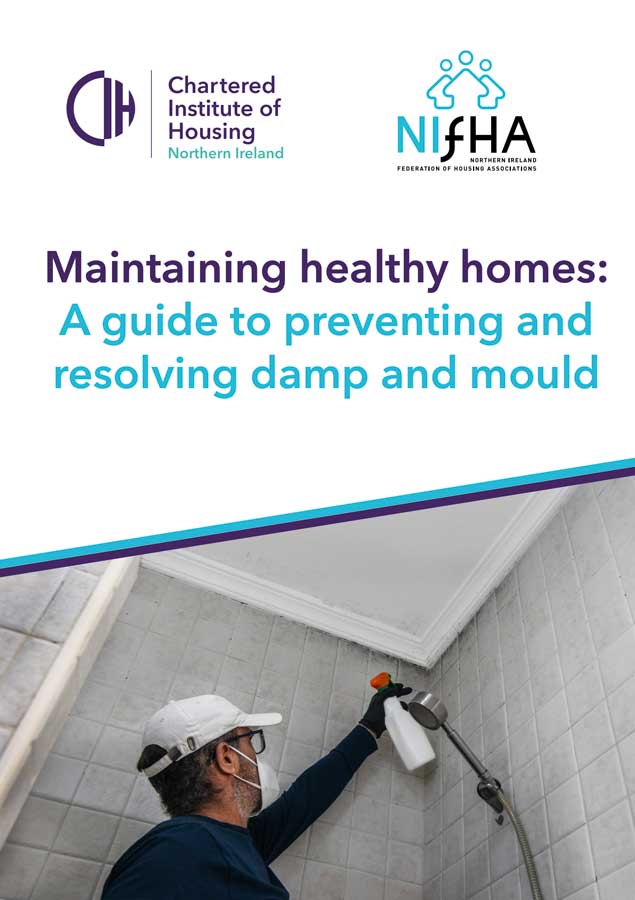Image: Istock
A new strategic chapter for housing in Northern Ireland
How sustained advocacy by the Chartered Institute of Housing is delivering tangible results for the people of Northern Ireland

GROWTH, REGENERATION, & DEVELOPMENT

Justin Cartwright
National Director for Northern Ireland, Chartered Institute of Housing

Justin Cartwright
National Director for Northern Ireland, Chartered Institute of Housing
Issue 80 | October 2025
Northern Ireland's housing sector is entering a new strategic chapter. It's a moment to reflect not only on recent progress but also to set a clear course for the future. For us at CIH Northern Ireland, this strategic foresight is a professional and personal passion. We’ve recently approved our new operational plan, which will guide our work and advocacy until 2027. This plan is our roadmap, a commitment to sustained effort in a field where impactful change is often a ‘slow burn’, requiring patience, collaboration and a clear vision.
Leadership in this space isn’t just about reacting to crises – it’s about building the foundations for long-term success. While the headlines often focus on the funding shortfalls and spiralling waiting lists, satisfaction comes from seeing how sustained advocacy, both publicly and behind the scenes, can lead to incremental but significant wins. So what has been achieved and how will we build on this in the coming years?
Policy and progress in action
Recent months have delivered several tangible results, demonstrating what’s possible when we work together. A significant win was the recent announcement from infrastructure minister Liz Kimmins about additional funding for wastewater infrastructure. This is a topic we’ve been advocating on for some time, noting that constraints in this area were directly blocking housing delivery, with more than 1,500 homes in Derry alone stalled due to a lack of capacity. The new funding, which will unlock more than 3,000 new connections, is a powerful example of how housing issues are inextricably linked to wider infrastructure.
For the 2025/26 financial year, the funding announced for social housing will deliver less than half of what’s required, and all eyes are now on the October monitoring round to see how much we can close that gap. The precedent is there – last year, a planned 400 starts rose to over 1,500 by the end of the financial year.
We have welcomed the initial announcement of an additional £9 million in new-build social housing funding, secured through the June monitoring round. While this is an important step in the right direction, it follows a period of intense scrutiny.
We’ve been at the forefront of highlighting budgetary challenges, especially after our analysis confirmed a concerning shift – £100 million of Reinvestment and Reform Initiative (RRI) funding, initially communicated as additional capital for new social housing, was confirmed to be included within the Department for Communities’ existing £270 million allocation. We promptly raised this concern, which led to prominent coverage and citation in the Northern Ireland Assembly, proving the value of data-driven advocacy.
in funding secured for wastewater infrastructure to which 3,000 homes will be connected in Derry, where developments have been stalled due to lack of capacity
Infrastructure Minister Liz Kimmins in Derry (DfI)
Shaping the housing agenda
Beyond funding, our work continues to shape key policy developments across the board. Our active engagement has helped shape proposals for a more refined selection scheme and fairer eligibility criteria in the fundamental review of social housing allocations. We have also provided detailed responses to a range of critical consultations, from supporting a Private Members’ Bill to ban unfair letting fees in the private rented sector, to offering feedback on proposed adjustments to the law on homelessness.
Beyond policy, we’ve delivered key initiatives on the ground. In collaboration with the Northern Ireland Federation of Housing Associations, we launched new guidance on damp and mould at Parliament Buildings. This comprehensive resource is now being considered for inclusion in the housing regulation branch’s annual survey, proving our commitment to practical, effective solutions.
We also took a stand against racially-motivated violence during Refugee Week, launching a new online resource for migrants and housing advisors. These projects highlight our commitment not just to high-level policy, but to supporting the profession and vulnerable communities on the ground.
Looking ahead
Our new operational plan provides the strategic focus to continue this vital work. It is a guide for how we will build on these incremental wins and address the broader, persistent challenges we face.
Ultimately, my own leadership philosophy is rooted in this sustained commitment. The journey to a fair and functioning housing system is a marathon, not a sprint. Each connection unlocked and every new home funded means thousands more households will have a place to call home, offering stability and opportunity.
It is these moments of progress, big and small, that validate our work and reinforce our resolve. The challenge remains, but so does our commitment to building a better housing future for all.
“The journey to a fair and functioning housing system is a marathon, not a sprint. Each connection unlocked and every new home funded means thousands more households will have a place to call home.”


